The content of the article
Pregnancy is already a very difficult test for the female body. At the beginning of this difficult period, many women suffer from toxicosis, they are constantly sick, they want to vomit. Mid-pregnancy is the time when you can take a break from toxicosis and prepare for the third trimester, which is considered the most difficult. The woman’s weight is growing rapidly, it becomes difficult for her to walk, the hormonal background is constantly changing. It is not surprising that in such conditions, many women develop varicose veins, even if the expectant mother has never encountered a similar problem before.
Varicose veins is a deterioration in the elasticity of the valves in the blood vessels and veins. Normally, blood pumps through the body. Valves allow it to pass only in one direction - they open when the blood flows in one direction and close so that the blood does not flow back. If for some reason these valves stop working or do it poorly, the blood stagnates, is retained in some organs. During pregnancy, varicose veins of the uterus, vagina, and groin can occur. But most often the problem is with the legs, because it is the legs that are experiencing a tremendous load. In this article, you will learn about the causes and symptoms of varicose veins, as well as get acquainted with the main ways to combat this disease.
Causes and symptoms of varicose veins during pregnancy
Varicose veins in itself is a very unpleasant disease, for the treatment of which you need to constantly observe a set of certain measures. But why is the disease activated during pregnancy? What serves as a trigger for the development of the disease?
- Weight. The most objective reason is a sharp increase in the weight of a woman. The legs of any person experience a certain load. If the weight is growing rapidly, blood vessels and valves simply can not get used to the increased load. And the weight, indeed, is greatly increasing - this is not only the weight of the fetus itself, but also amniotic fluid, increased blood volume, increased appetite, etc.
- Hormones. Pregnancy is a serious test for hormones. In the later stages, the woman’s body begins to produce special hormones that make the uterine muscle tissue more elastic and soft - preparation for childbirth is in full swing. Along with this, the blood vessels relax, which is why they cannot properly carry out the outflow of blood. Because of this, stagnation occurs.
- Blood. With the advent of a new life in the body, the woman's circulatory system is actively increasing. Indeed, now the blood should “serve” not one, but two (in some cases, even three) organisms. It becomes very difficult for the heart to pump such volumes. An increased amount of blood can be considered another reason for the development of varicose veins during pregnancy. In addition, the pressure in the vessels increases - so the body ensures that the blood flows to the fetus. As a result, the blood vessels dilate.
- Protein. Nature prepares the woman’s body for childbirth and at the end of the term throws a large amount of protein into the blood. It is necessary to prevent severe bleeding. However, high blood coagulation leads to the appearance of blood clots in the blood vessels of the legs.
- Low physical activity. Many pregnant women try to move less, constantly lie, which is not always justified. Pregnancy is not a disease and you do not need to give up physical activity. Moderate exercise and smart sports improve blood circulation in the body.Everything is aggravated if the pregnant woman is forced to work, and the work is sedentary. In this case, the risk of developing varicose veins increases several times.
- Heredity. The elasticity of blood vessels, as well as their predisposition to varicose veins is transmitted genetically through the female line. If your mother has vein problems, then in 80% you will have some signs of varicose veins during pregnancy. In this case, you need to treat the body more carefully.
The risk of developing varicose veins increases with each subsequent pregnancy. In addition, pregnant women can not sunbathe in direct sunlight - this can also trigger the activation of varicose veins.
At first, varicose veins seem to be just a cosmetic problem - spider veins and a blue net appear on the skin. Then edema appears on the legs (usually in the evening), the legs hurt even after a short walk. Subsequently, the veins swell, become embossed. In rare cases, cramps appear in the legs. But cramps are a common occurrence during pregnancy and may indicate a calcium deficiency. If you observe at least a few of these symptoms, consult a doctor immediately.
Varicose veins during pregnancy - what to do?
If you have been diagnosed with varicose veins during pregnancy, you should follow some recommendations.
- The first thing to do is consult with your doctor about taking phlebotonics - drugs to improve blood circulation. Among the funds that are acceptable for admission during pregnancy, one can name Detralex, Eskuzan, Ginkor forte. Self-medication during pregnancy is strictly contraindicated, otherwise it can harm the fetus. Long-term administration of phlebotonics will strengthen the walls of blood vessels, restore damaged sections of veins.
- In some cases, a decision is made to take anticoagulants - drugs that promote blood thinning. On the one hand, this type of medicine protects the body from blood clots, and on the other hand, anticoagulants can be very dangerous - sometimes they lead to bleeding and placental abruption. That is why the prescription of drugs should be under the strict supervision of a doctor - a gynecologist and a phlebologist.
- In addition to internal treatment, topical application of ointments and gels is also effective. Before using any medication, read the instructions and make sure that this tool can be used during pregnancy. Among the acceptable and effective drugs include Lyoton, Heparin, Troxevasin, etc.
- Wearing compression underwear is mandatory - the thicker the medical tights and stockings, the more powerful the effect they have. Please also note that on socks and stockings should not be too tight and hard elastic bands - they disrupt the blood flow.
- Before giving birth, it is necessary to inform the medical staff about their problem, it may be necessary to put on compression underwear before the birth process, so that strong attempts do not lead to a deterioration in blood flow or a blood clot.
- Have more rest, move. If you are forced to work in a sitting position, try to walk more, walk more. If you work while standing, on the contrary, go to bed more often.
- Every day, keep your legs raised above the body for at least half an hour.
- Avoid high heels if you haven't done it yet.
- Do warm-ups for the legs - move your feet from one side to the other, make circular movements with socks, sitting on a chair. Effectively tiptoeing on the inside and outside of the feet. When performing the exercise, you can hold onto the walls for insurance - only the fall you now lacked.
- With advanced forms of the disease, the doctor may prescribe physiotherapy. To improve blood circulation in the veins will help Dorsonval, Laser, phototherapy.
- It is very helpful to do massage.Every day, on your own or with the help of your husband, you need to stretch your feet and legs to the knees - this perfectly improves blood circulation in the tissues.
- It’s very useful to swim during pregnancy - the load on the legs and spine decreases in water, and the muscles strengthen.
- A contrast shower should be done to improve the elasticity of the blood valves. Water your feet alternately with warm or cold water. But the warming procedures are forbidden - you can’t go to the bath and sauna, steaming the legs is strictly contraindicated.
- You need to sleep on the left side - so you do not pinch an important artery, which is located on the right in the uterus.
- You can’t sit cross-legged.
- Do not overeat - watch the weight. No need to eat for two - there should not be much food, but it should be nutritious.
- You can not lift weights - this contributes to the expansion of veins and is generally strictly contraindicated during pregnancy. Allowable maximum is 2-3 kg.
These simple tips will help you avoid the development of the disease during pregnancy. But there are a few more recommendations for restoring vein elasticity.
Folk remedies in the fight against varicose veins
Folk remedies in the treatment of varicose veins are really justified - because they do not have chemistry, they are absolutely natural and safe, which is the main factor during pregnancy. It is very effective in treating varicose veins with apple cider vinegar. In general, it is taken orally and applied to the affected areas of the skin. Lubricating your feet with apple cider vinegar, of course, is possible, but for now, you should refuse to use inside, at least for the period until you give birth.
Starch will help relieve swelling and pain in the legs. Fresh potatoes should be chopped on a grater or in a blender, and then apply the mass to the spider veins. Fix with a film and leave for several hours, and preferably at night. Instead of potatoes, you can use green or ripe tomatoes, nettle pulp.
Horse chestnut tincture is very effective against varicose veins. Fruits should be scrolled through a meat grinder, and then pour alcohol or vodka so that the liquid covers the chestnut flesh. Leave in a cool dark place for 3 weeks, stirring the contents periodically. Usually, tincture is taken orally and topically - in case of pregnancy, alcohol is, of course, contraindicated, therefore, this tool can only be used externally. Apply daily to affected areas of the skin - morning and evening. This tool will help you not only relieve pain and swelling, and will have a therapeutic effect - spider veins will become much less noticeable. Instead of chestnut, you can use leaves of Kalanchoe - a tincture prepared in a similar way very effectively fights varicose veins.
Remember that varicose veins is an insidious disease, which at first may not appear at all. All the measures described above should be used during pregnancy in order to prevent the development of the disease, that is, as a preventive measure. If vascular asterisks are found, be sure to consult a doctor. After all, the disease is much easier to treat at an early stage of development. Watch your body so that only warm and pleasant memories remain about the period of pregnancy.
Video: how to prevent varicose veins during pregnancy

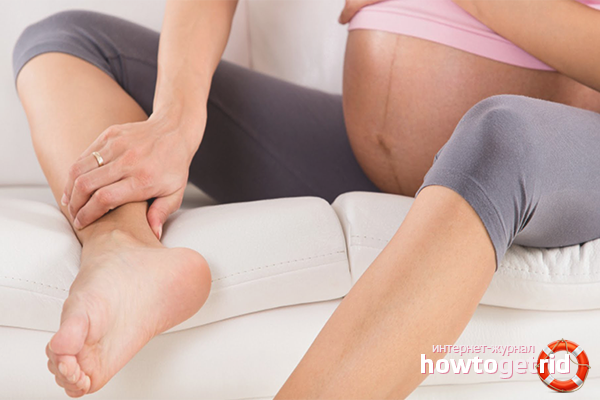
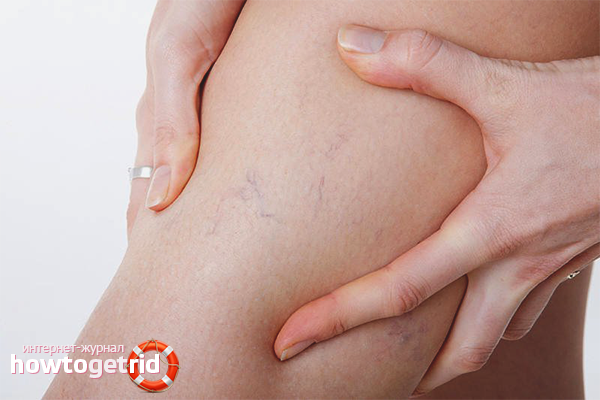


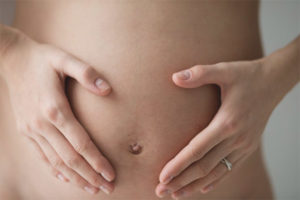

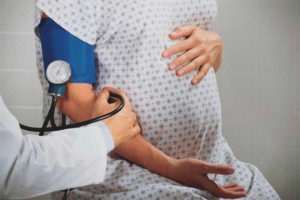
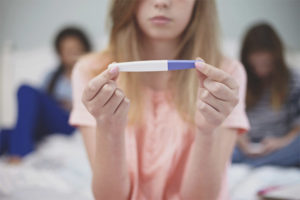
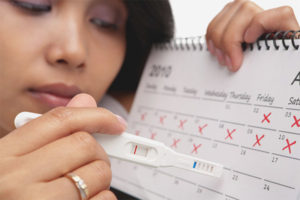
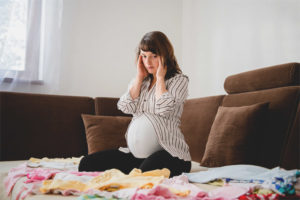
Submit